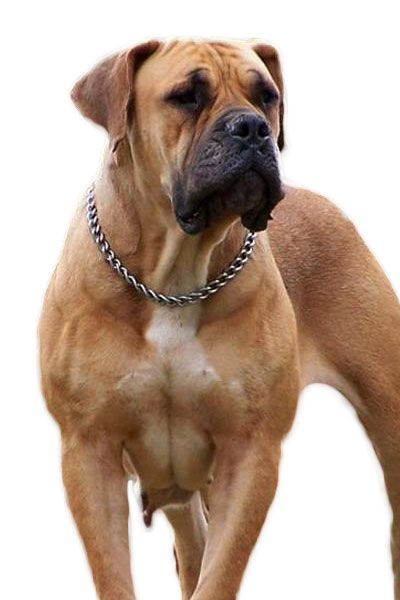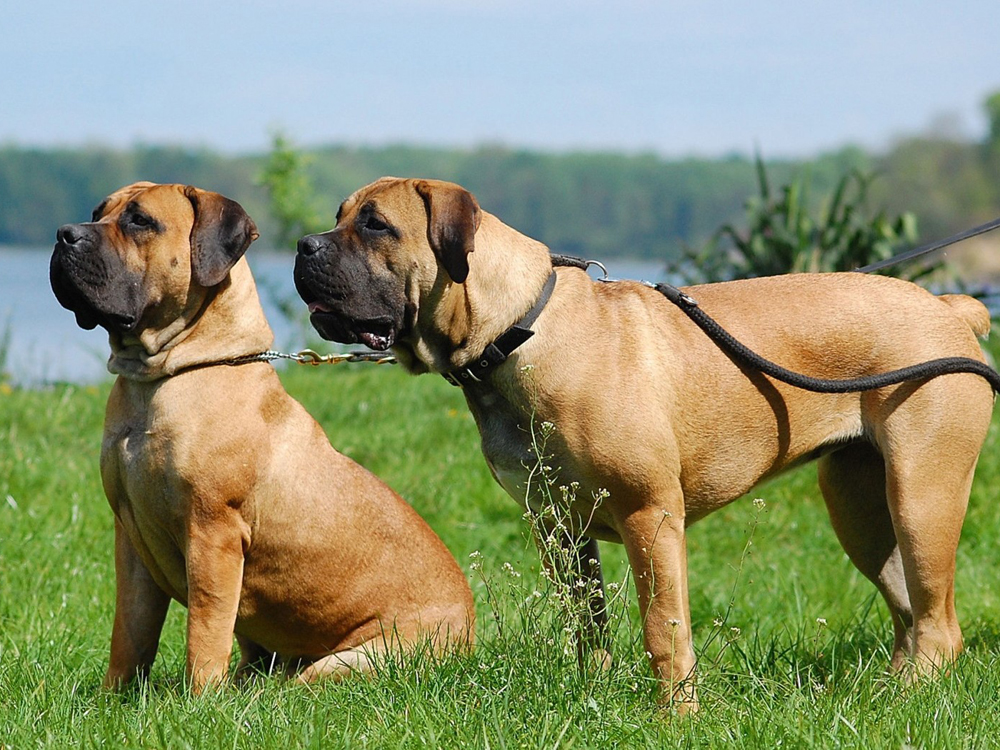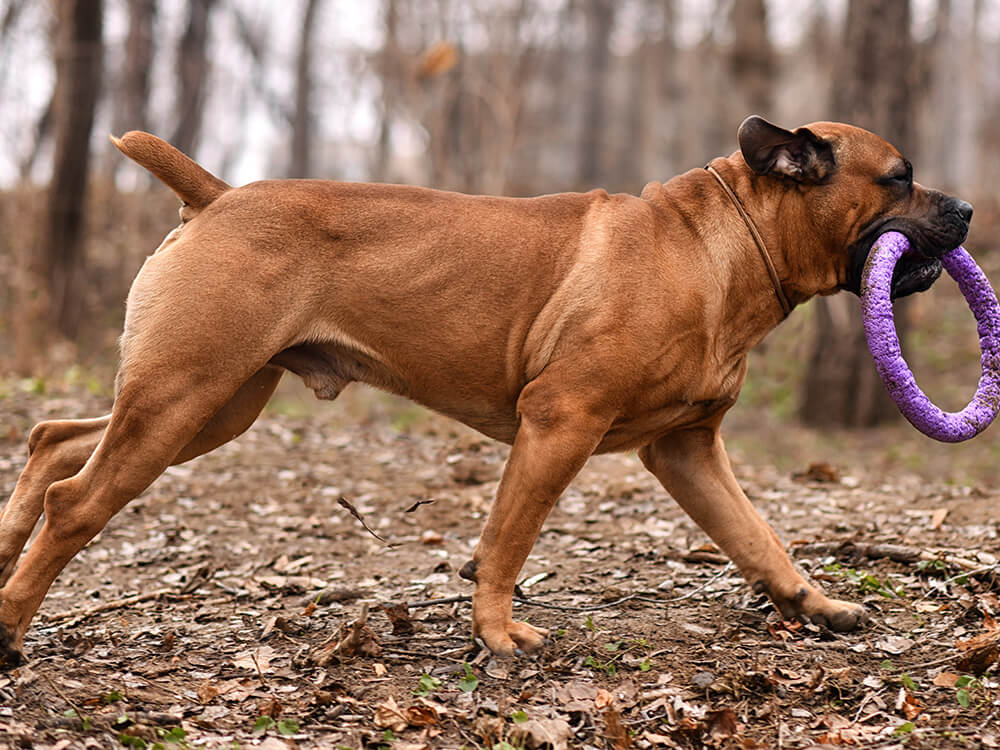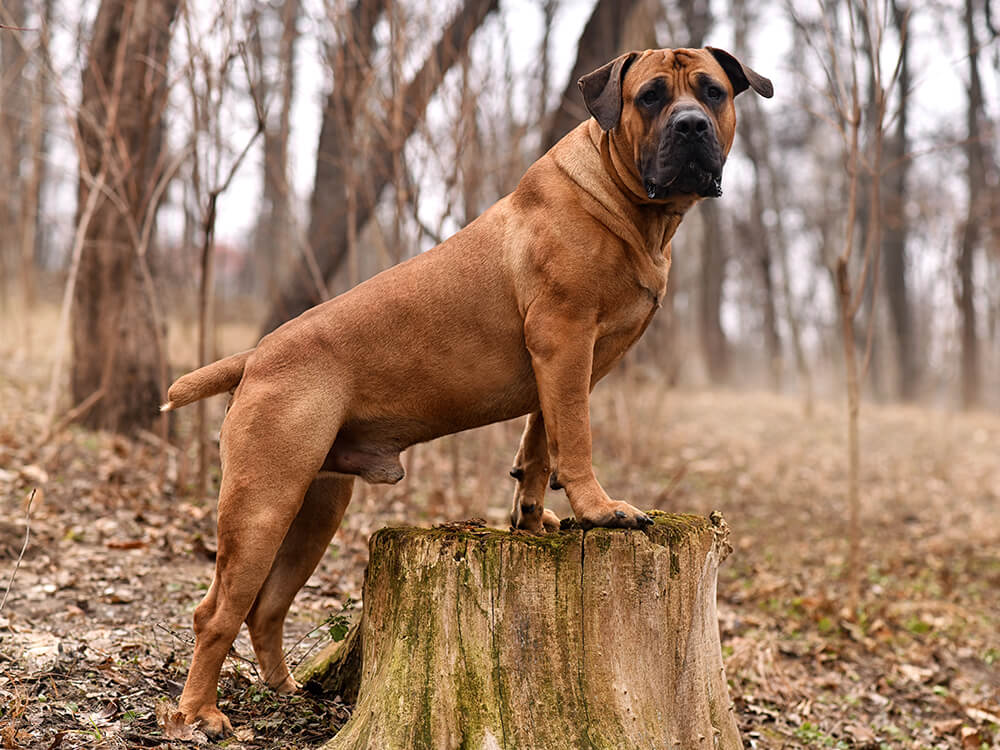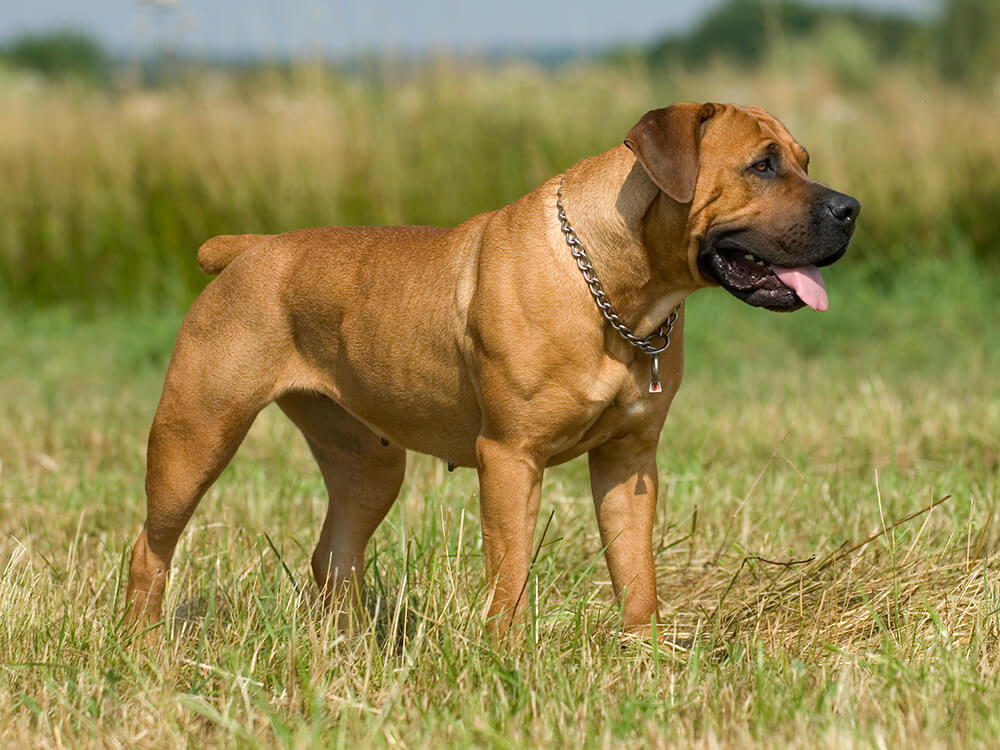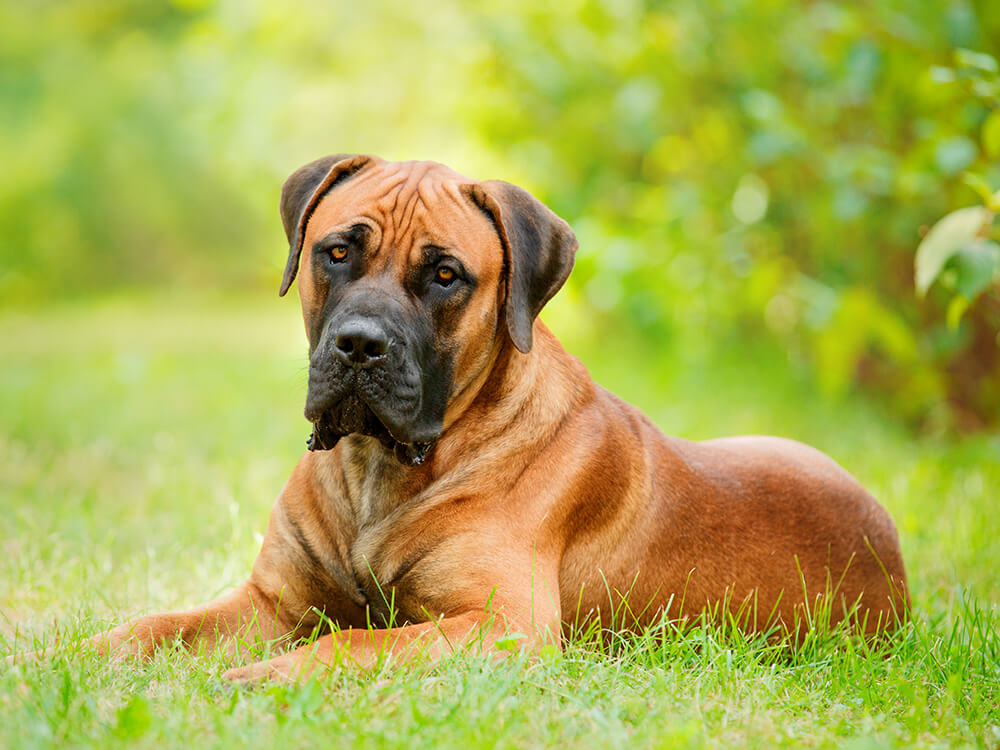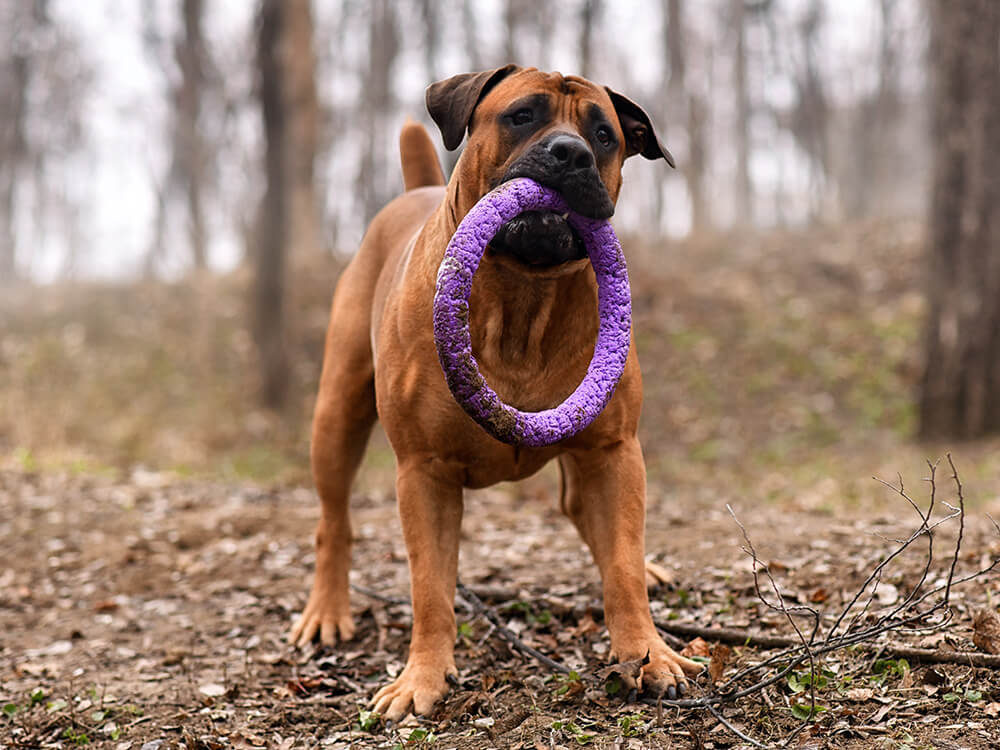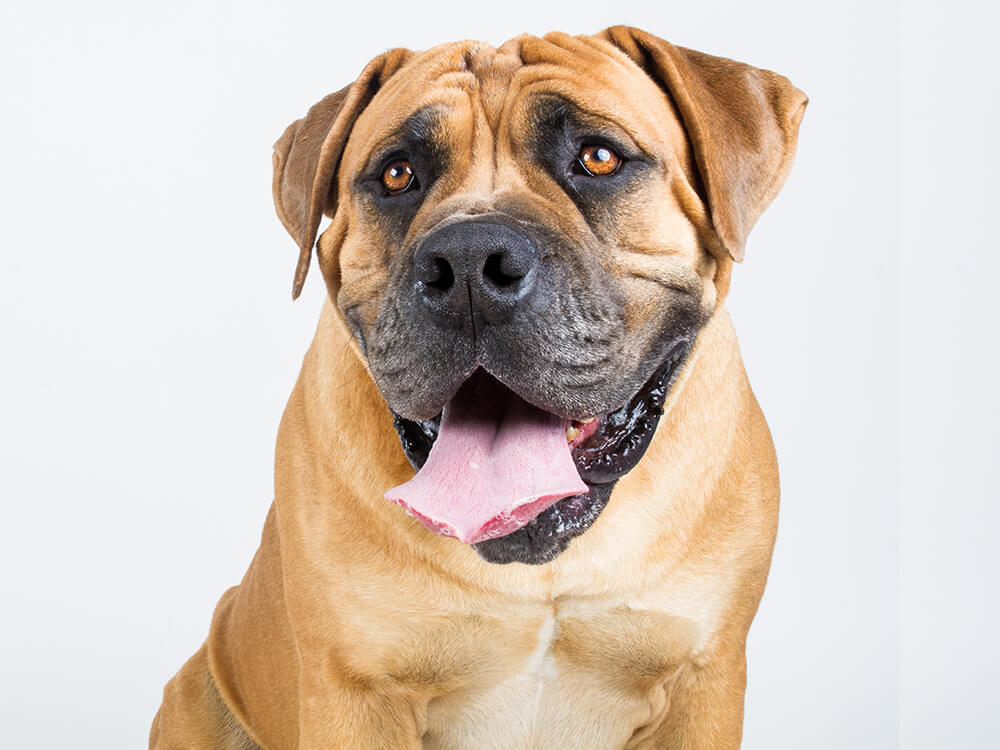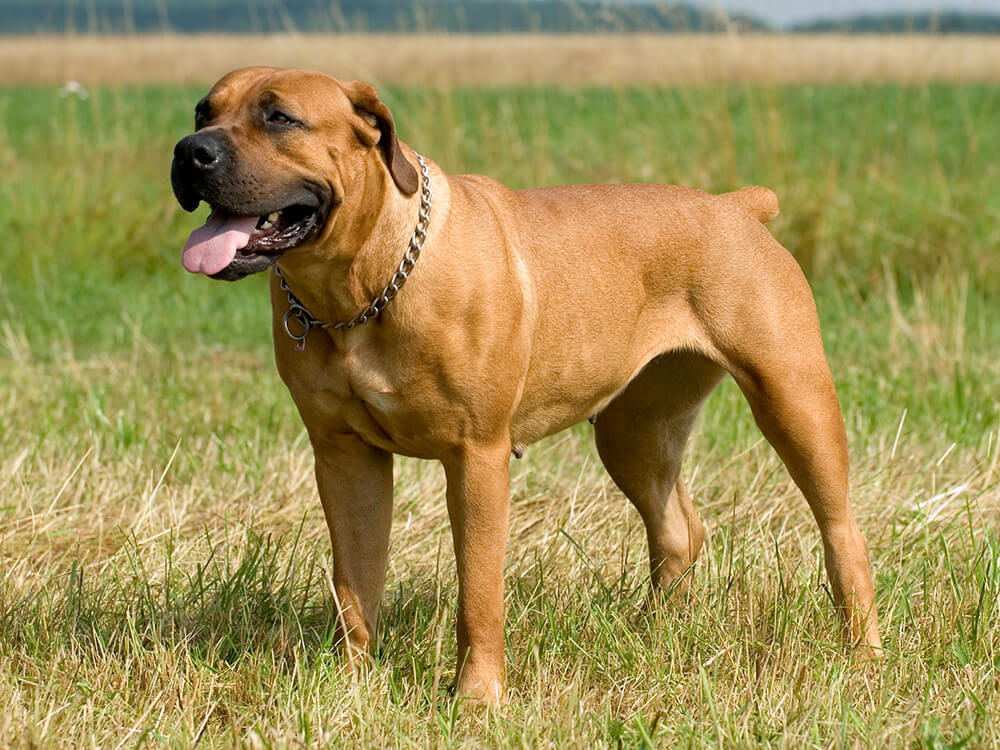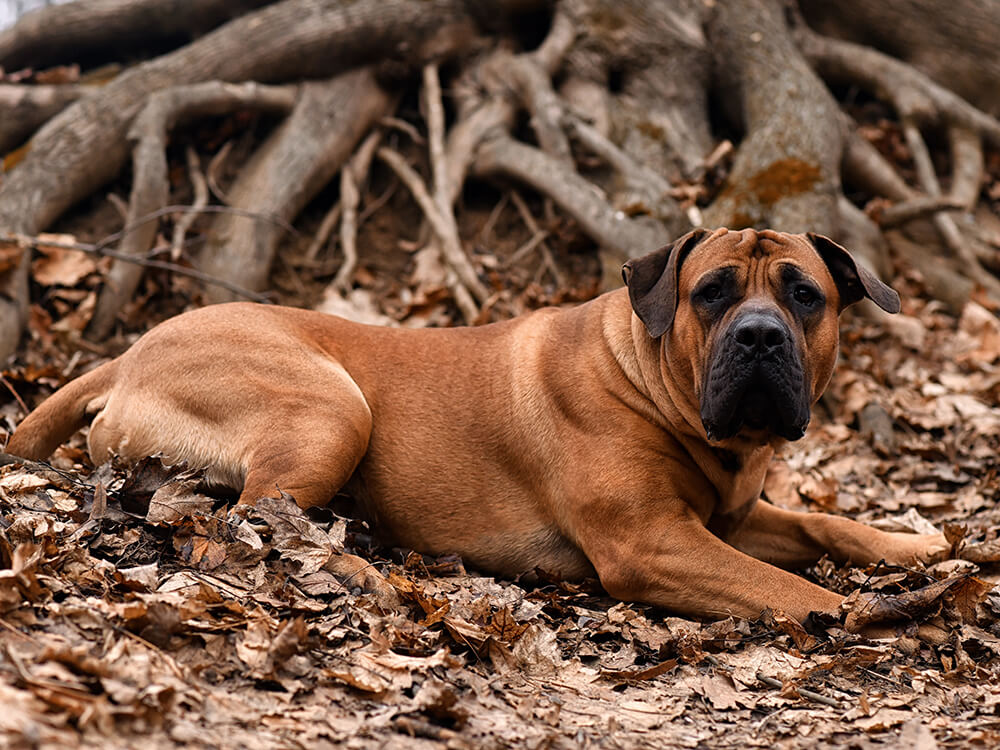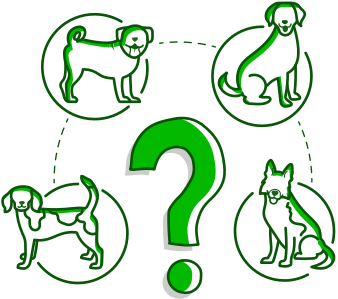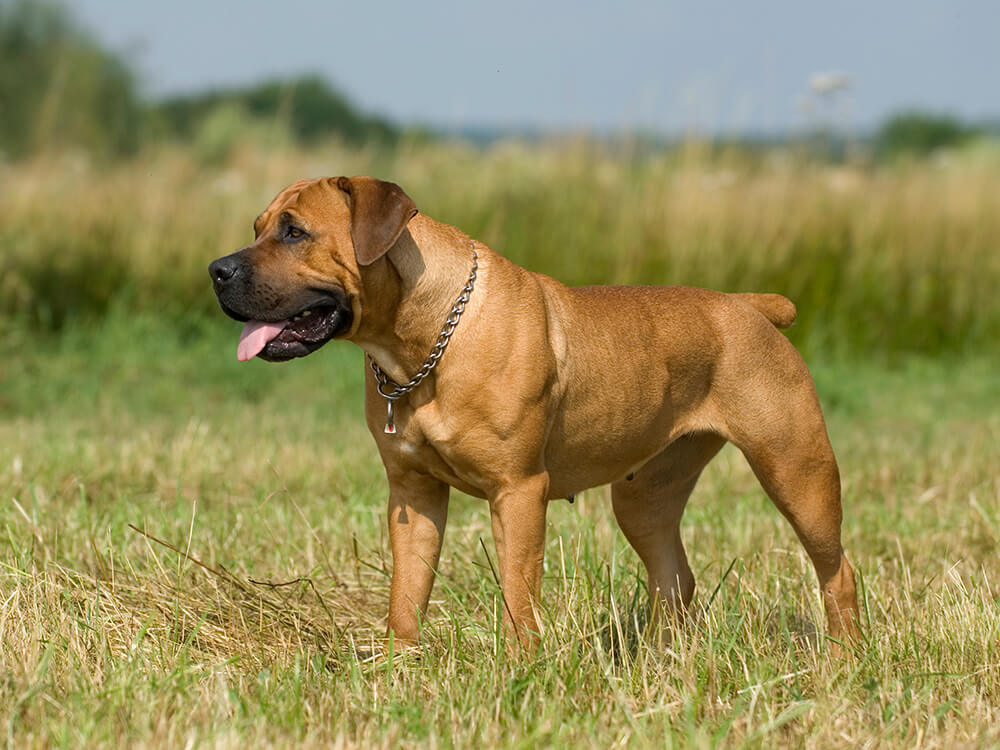
Boerboel Breed Pictures
Vital Breed Stats
| Height: | 61 - 68 cm M | 55 - 63 cm F |
| Weight: | 68 - 90 kg M | 68 - 90 kg F |
| Breed Group: | Utility Dog Group |
| Life Expectancy: | 7 - 10 years |
| KC Registered: | No |
Breed Characteristics
| Size: |  |
| Grooming: |  |
| Exercise Level: |  |
| Trainability: |  |
| Barking Level: |  |
| Good with Children: |  |
| Good with other pets: |  |
| Affectionate: |  |
| Protective: |  |
| Cost to Keep: |  |
Give a thumbs up if you love the Boerboel

0
More About the Breed
History
A little uncertainty shrouds the real history of the Boerboel. However, it is believed that the breed first came about in the mid 1600s when settlers from Holland, Germany, France, and England took their dogs with them to South Africa. There they started to cross breeding their dogs with the native Africa landrace dogs, such as the Africanis.
According to reports, a Dutchman named Jan van Riebeeck came to Cape Horn in South Africa in 1652, with him was a dog to protect his family. This Dutch dog was called "Bullenbither," which roughly translates to "bull biter." It was a huge, muscular, Mastiff-type dog with guarding and protective instincts that was bred to various local dogs. This breed was the early origin of the Boerboel.
In the early 1900's, Bullmastiffs were also brought to South Africa by a large diamond mining company, DeBeers, to guard their valuable mines. These dogs were also crossbred to the Boerboels of that time, thus contributing to its evolution.
In 2015, the American Kennel Club had classified the Boerboel as a working dogand was granted full recognition. However, this dog breed has yet to be recognised by The Kennel Club despite its growing popularity in the UK.
Appearance
The Boerboel is a giant-sized, muscular, and sturdy dog with a strong bone structure. The head looks like a huge block, broad and square with a flat skull. The boer has a strong neck, shoulders, and huge hindquarters, boasting of a powerful, boned back legs and well-developed upper thighs. It also has a deep chest that is wide and broad with well-sprung ribs. It has a black facial mask covering the muzzle up to the eyes. It stands 59–70 centimetres and weighs 110–175 pounds. However, despite its impressive and bulky appearance, it is agile and athletic.
When it comes to coat colours, Boerboel sports various shades of red, brown, black, fawn, or brindle. Its coat is short, dense, smooth, shiny, and smooth. It may also have white markings on the legs or chest.
Grooming
This dog breed is a moderate shedder, so it is low-maintenance. However, the Boerboel needs to be groomed on a regular basis. Brushing its coat once a week will do to remove dead hair and keep its coats clean. It doesn't require frequent bathing since too many baths can dry out the dog's skin and make it flaky.
Its ears should be checked and cleaned regularly to prevent wax build-up and dirt which may lead to infection. Teeth should be regularly brushed to maintain oral health and avoid the accumulation of tartar. Also, check for ticks and fleas especially during warm weather.
Temperament
Intelligence
Nutrition
- Senior and less active: up to 2,390 calories daily
- Typical adult: up to 2,690 calories daily
- Physically active: up to 2,990 calories daily
Feeding
Health
Exercise
Cost of Ownership
The Boerboel breed is rare, so it is quite hard to find. Prepare to be on the waiting list if you are keen to get a well-bred pedigree puppy. Purchasing a Boerboel puppy will cost you £1,000 to £1,200, which is a bit more expensive than most puppy breeds. The cost to insure a boer will be around £60 a month for a basic cover and over £100 for a lifetime cover. However, that is only an estimate. Pet insurance companies consider different factors in calculating a dog's premium insurance cover.
Food-wise, the Boerboel will cost you around £50–£60 a month for premium-quality dry dog food. Since it's a massive dog, food is also a bit expensive compared to other breeds. Veterinary consultations, health checks, and other procedures such as vaccinations, boosters, and spaying/neutering will cost you well over £1,600 a year. This does not include treatments to health disorders, unless insurance covers them.
Is a Boerboel Right for You?
- Boerboels are very smart and highly trainable.
- Grooming needs are not demanding due to their short coat.
- They are great watch and guard dogs; extremely protective.
- Not ideal for new dog owners because of their training requirement.
- If not socialised well, they tend to be aggressive to other animals.
